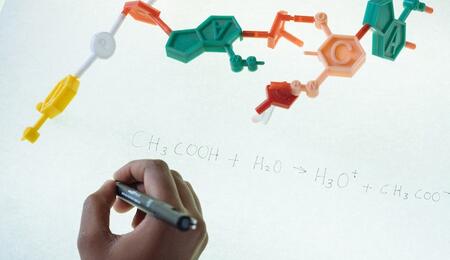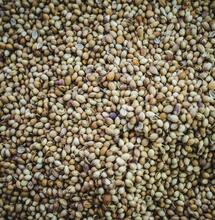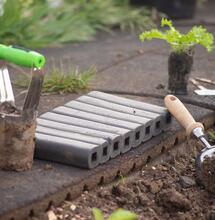The Super Strength Weed Grown in a Bioreactor

An Israeli company has successfully cloned hemp cells and grown them to have all the active compounds of cannabis but at 12 times the potency.
BioHarvest Sciences says the breakthrough could make medical cannabis cheaper, cleaner and greener. The company have started applying for licenses to manufacture and sell its product in Israel and the United States for medical use.
BioHarvest does not grow the actual plant itself. The process involves "replicating" cells from a hemp plant in big tanks known as"bioreactors" to produce vast amounts of identical cells.
"We grow them in huge bioreactors in just three weeks, while regular cannabis takes 14 to 23 weeks. Our tech can also significantly increase the levels of active ingredients, as a per cent of the weight, versus what is found normally in the plant." -BioHarvest CEO Ilan Sobel.
The cells produced by the bioreactor require fewer resources, such as water, to grow than a regular cannabis plant. It will also go further in the treatment of patients.
BioHarvest has not revealed the proprietary technology used in the endeavour. Still, they did say that the potency had been increased 12-fold purely by a change of environment inside the bioreactor.
"By adjusting specific conditions to which the cells are exposed, we can create different desired compositions of active ingredients, meaning we can dial up and down the various cannabinoids." -BioHarvest CEO Ilan Sobel.
Sobel said that the bioreactor's biomass consists of cells identical to those found in cannabis plants and that there has been no genetic modification. The composition comprises substantial amounts of major cannabinoids, CBD and THC, and large quantities of minor cannabinoids. As well as containing high levels of active cannabinoids, the biomass is full-spectrum.
The controlled environment of the bioreactor could help eradicate two big challenges of cannabis farming, contamination and varying levels of cannabinoids. The sealed environment in the bioreactor keeps out disease, bacteria and fungi threats. The controlled nature of the procedure delivers products with consistent cannabinoid levels.
BioHarvest claims that if its biomass proves popular, it will be able to deliver all the benefits of medical cannabis for less cost and with less environmental impact.
The company estimate that eight times more material is made in the bioreactor for each kilowatt of electricity than it is from plants. When it comes to water, each gallon makes 54 times more bioreactor material than it would plant material. Land requirements are reduced, too, by over 90%.
The company's resource-saving growing techniques are already famously used to grow crops such as olives, pomegranates and grapes.
"The bottom line is that we can make cannabis and hemp far more useful than before, at lower cost to our planetary resources," Sober stated.









